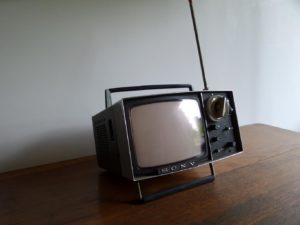A tiny non-profit is making big waves in the vast ocean of television broadcasting. Locast.org now offers a handful of local broadcast television stations online and appears to have found a legal loophole that has prevented similar companies from streaming local broadcast television stations in the past.
Locast.org is what is known as a “digital translator.” Traditional broadcast translator services are low-powered television stations that rebroadcast the signal of full-power station to areas that the full-power station signals cannot reach. For instance if someone in Adair, Iowa was too far away to receive a local television broadcast signal from Des Moines, Iowa, a broadcast translator service could set up a rebroadcast antenna between the two cities, which would allow viewers from Adair to watch Des Moines local television broadcasts. Locast.org acts like these traditional broadcast translator services, except that instead of  rebroadcasting a local broadcaster’s signal over-the-air, Locast.org rebroadcasts the signal over the Internet. To keep the reach of the rebroadcast local, Locast.org users must sign up online, provide a name and email address, certify the city they live in and are logging on from, and then select their city online. Currently, Locast.org is only available in a handful of markets, but intends to expand in the future.
rebroadcasting a local broadcaster’s signal over-the-air, Locast.org rebroadcasts the signal over the Internet. To keep the reach of the rebroadcast local, Locast.org users must sign up online, provide a name and email address, certify the city they live in and are logging on from, and then select their city online. Currently, Locast.org is only available in a handful of markets, but intends to expand in the future.
So why has no one done this in the past? They have. It is just that they have all been shut down. To understand where other have failed and Locast.org appears to be succeeding requires a look at the law governing rebroadcast of local television signals. The Telecommunications Act of 1996 requires that local television stations consent to give cable systems or other multichannel video programming distributors (MVPD) to rebroadcast the local television stations’ signals. Cable companies, satellite providers, and other MVPDs negotiate with local television stations for this consent to rebroadcast, typically in exchange for cash or other consideration.
Failure of the cable provider and the local television station to come to an agreement can result in the cable company subscribers no longer being able to access their local television station. Combine this with people who do not have cable or satellite and still wish to receive their local television stations and you can see why the market for an alternative access to local television stations exists. Other companies have tried to do what Locast.org is doing. One such company was Aereo. When Aereo entered the market to provide users with internet access to local television stations a consortium of major broadcasters, including NBC, CBS, ABC and Fox, sued Aereo. The case went to the United States Supreme Court, which held that Aereo did indeed infringe the exclusive right of the owners of the copyright in the network broadcasts by selling Aereo’s subscribers a technologically complex service that allows them to watch television programs over the Internet at about the same time as the programs are broadcast over the air.
So what allows Locast.org to thrive, where competitors like Aereo have failed? The secret lies in one small section of the united States Code. Under 17 U.S.C. § 111, “The secondary transmission of a performance or display of a work embodied in a primary transmission is not an infringement of copyright if [….] the secondary transmission [….] is made by a governmental body, or other nonprofit organization, without any purpose of direct or indirect commercial advantage, and without charge to the recipients of the secondary transmission other than assessments necessary to defray the actual and reasonable costs of maintaining and operating the secondary transmission service.” According to 17 U.S.C. § 111, it appears that as long as Locast.org remains a nonprofit, it maintains the right to rebroadcast local television station signals to consumers in those markets.
So network broadcasters are left with a conundrum. Should they sue Locast.org at all? The upside of a successful lawsuit would mean the continuation of huge revenues across the country from cable companies paying to rebroadcast their signals. The downside of an unsuccessful lawsuit would likely mean a significant decrease in those revenues, as cable companies no longer felt compelled to deliver a product their customers can get for free online. From the network broadcasters’ vantage, Locast.org does not appear to have the resources to fight a lengthy copyright battle in federal court. However, the language of 17 U.S.C. § 111 appears clear, so clear, that a court might grant Locast.org summary judgment on the issue, meaning Locast.org could likely avoid the majority of the legal fees involved in these types of fights. Additionally, if a court were to grant Locast.org summary judgment, it is likely that donations to Locast.org would skyrocket overnight, leading to a rapid boost in its expansion plans.
Even more interesting, is what this upstart company might mean for cable and satellite providers. Video consumers have shown a strong affinity for à la carte picking and choosing among only those providers they want to watch i.e.(HBO, Amazon Prime, Netflix, etc.). Consumers do not want to pay a portion of the huge fees associated with channels like ESPN if they do not watch sports. If providers like Locast.org finally allow consumers to receive local stations without having to purchase predetermined packages from cable and satellite providers, and instead select only those channels they wish to receive, the market for cable and satellite providers may quickly plummet. At the present, network broadcasters, cable and satellite providers, and consumers all appear to be waiting to see how things progress with Locast.org before taking action. No one knows for sure how Locast.org’s risky gambit will pay off, but rest assured, it will be interesting.





Recent Comments